The Revival of Political History
How one fellowship program is bringing a field of study back to the forefront
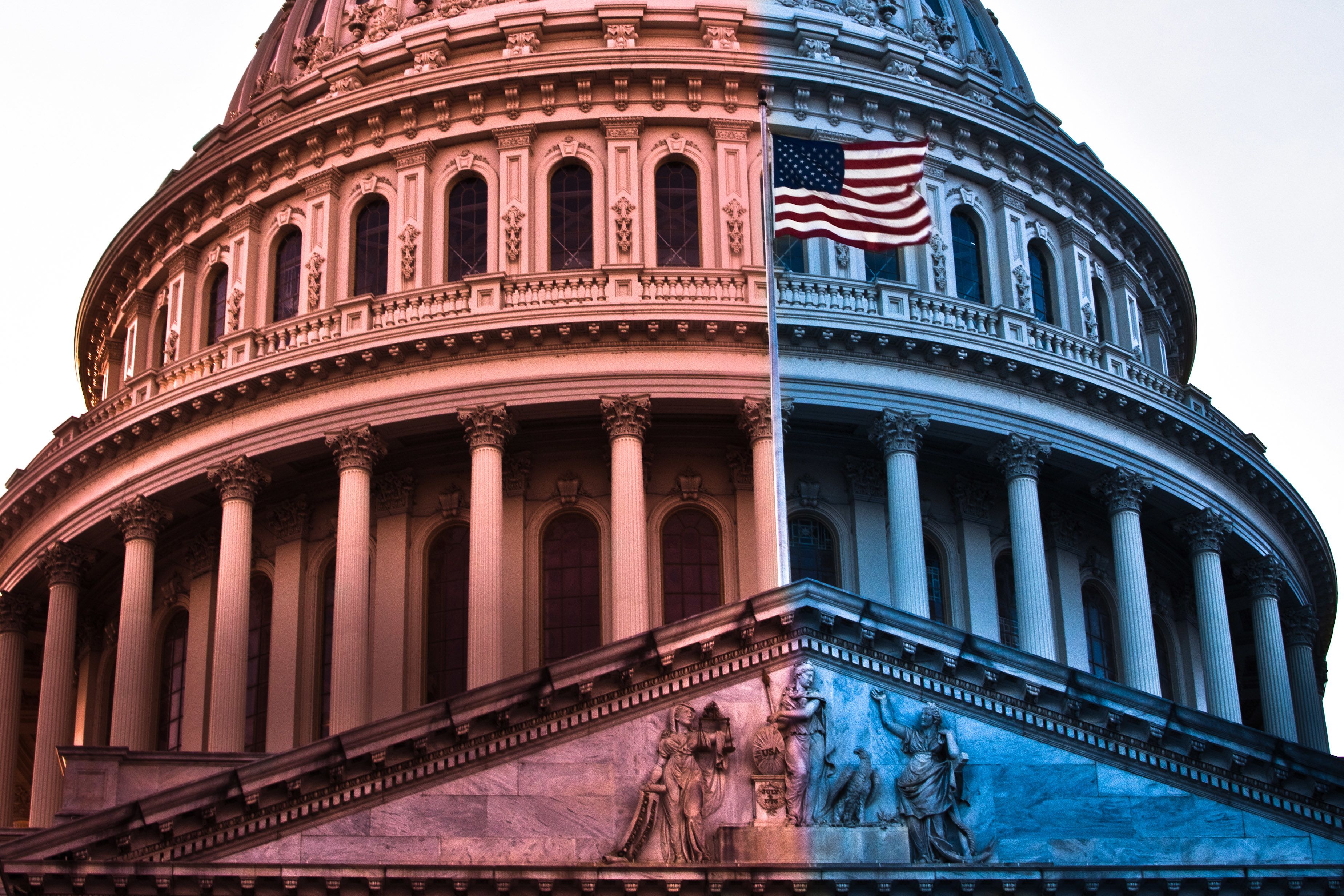
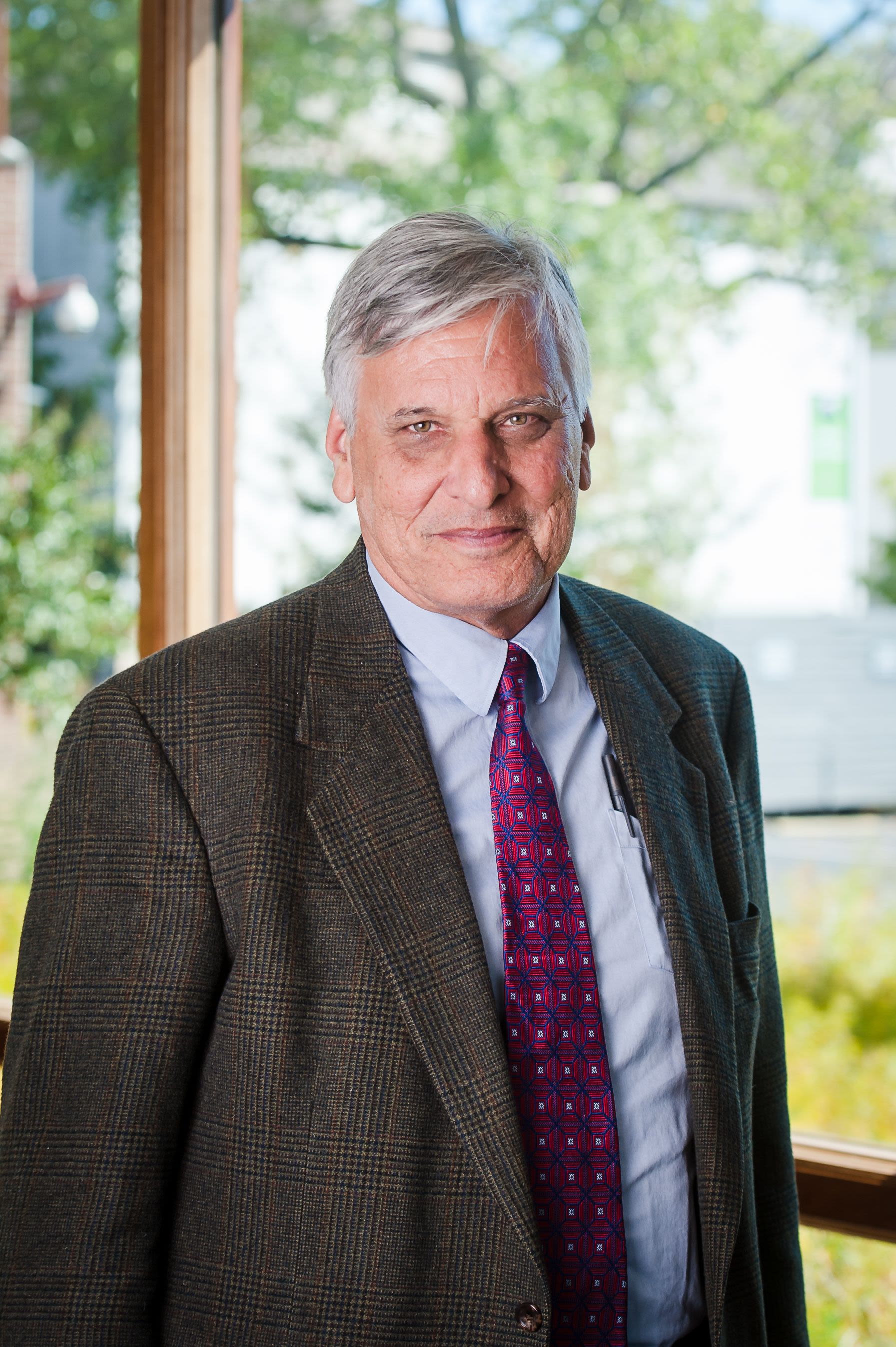
Brian Balogh launched the National Fellowship Program in 2000 to help revive political history.
Political history is deeply embedded in nearly every aspect of American society. From education to healthcare, politics plays a powerful role in shaping the lives of Americans. Even popular culture is inextricably bound to politics. Countless films and television series gain critical and commercial success by drawing on the political turmoil of a given time. Late-night talk shows and satirical news programs rely on a daily influx of political fodder. The American public, it seems, has an insatiable appetite for consuming political content.
And yet, with history departments finally devoting long-overdue attention to subdisciplines like the history of gender, Black history, and cultural history, by the 1980’s, American political history as a field of study began to enter a state of decline. There was much handwringing by some of the senior scholars in the field. Brian Balogh, professor emeritus at the University of Virginia, recalls his graduate advisor congratulating him for “having the courage to go into a dying field.”
Balogh, perhaps naively, was determined to do his part to revive the field. So, he set out to establish a new graduate fellowship that would support doctoral candidates completing ambitious dissertations on topics pertaining to U.S. politics at home and abroad.

Brian Balogh launched the National Fellowship Program in 2000 to help revive political history.
Brian Balogh launched the National Fellowship Program in 2000 to help revive political history.
The National Fellowship, as it was aptly named, was launched in 2000 in Charlottesville, Virginia, home to the state’s flagship university. From the outset, however, the Fellowship was national in scope, supporting talented Ph.D. students at some of the world’s top universities, not just at UVA, and pairing them with renowned senior scholars. These senior scholars, affectionately referred to as “dream mentors,” would be handpicked by the Fellows and would play an integral role in reviewing and providing feedback to their research.
According to Balogh the program was designed to create a network of historians, political scientists, and sociologists who sought to understand politics from an historical perspective. It also defined politics capaciously, drawing upon the energy and stature of fields like legal history and environmental history, as well as some of the very subdisciplines like urban history, Black history, and the history of gender that had initially led to all that handwringing by political historians.
Tom Sugrue, a professor at New York University who specializes in 20th-century American politics, urban history, civil rights, and race, was one of the first dream mentors to be selected and, in fact, holds the record for having been selected four times in the last 20 years. Sugrue has authored, co-authored, or edited 10 books, racking in a slew of awards, including the Bancroft Prize in American History, the Philip Taft Prize in Labor History, and the President's Book Award of the Social Science History Association, among others. His body of work includes more than 60 articles in top academic journals and spans three decades, making him an ideal advisor for a rising scholar.
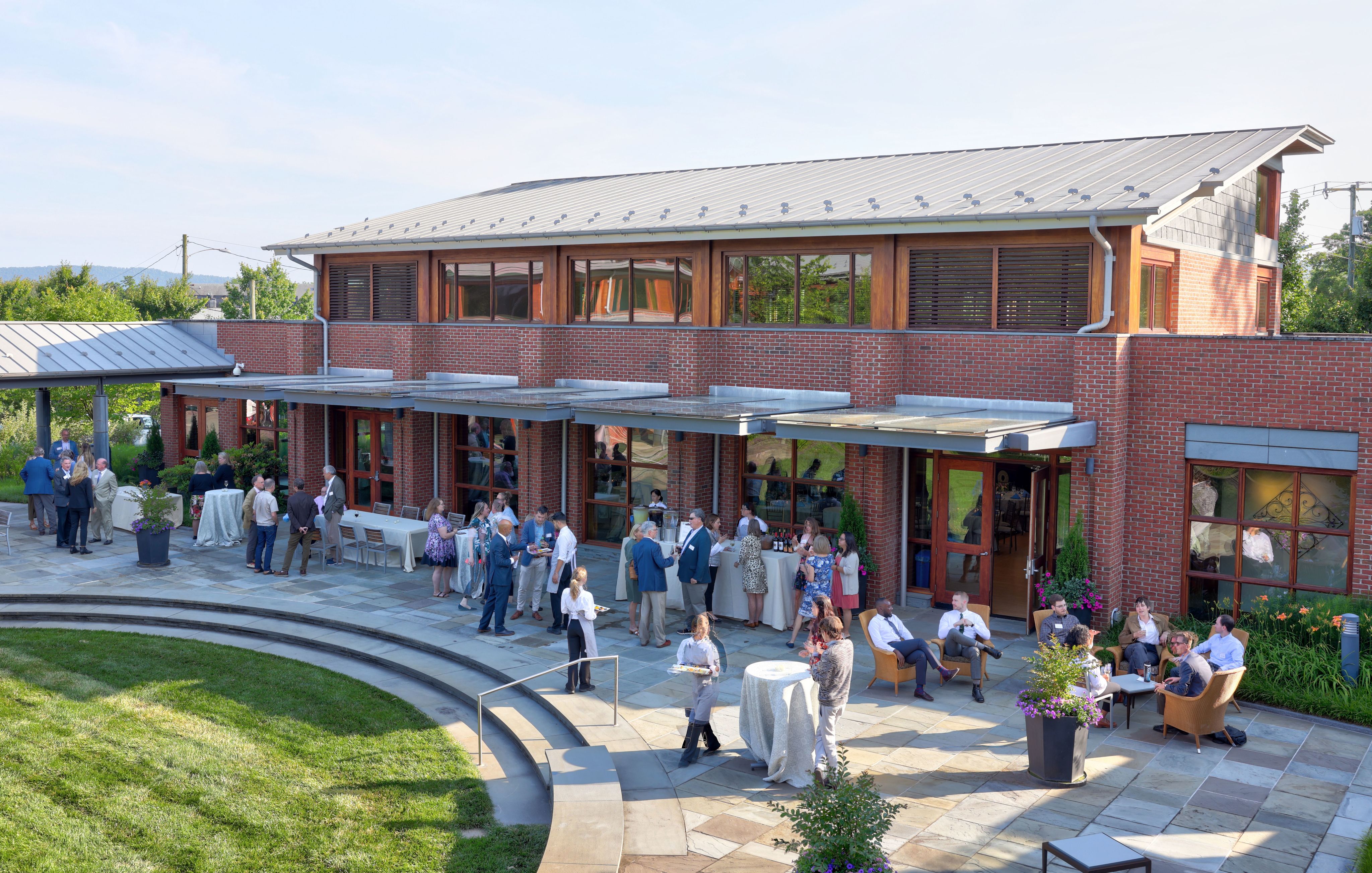
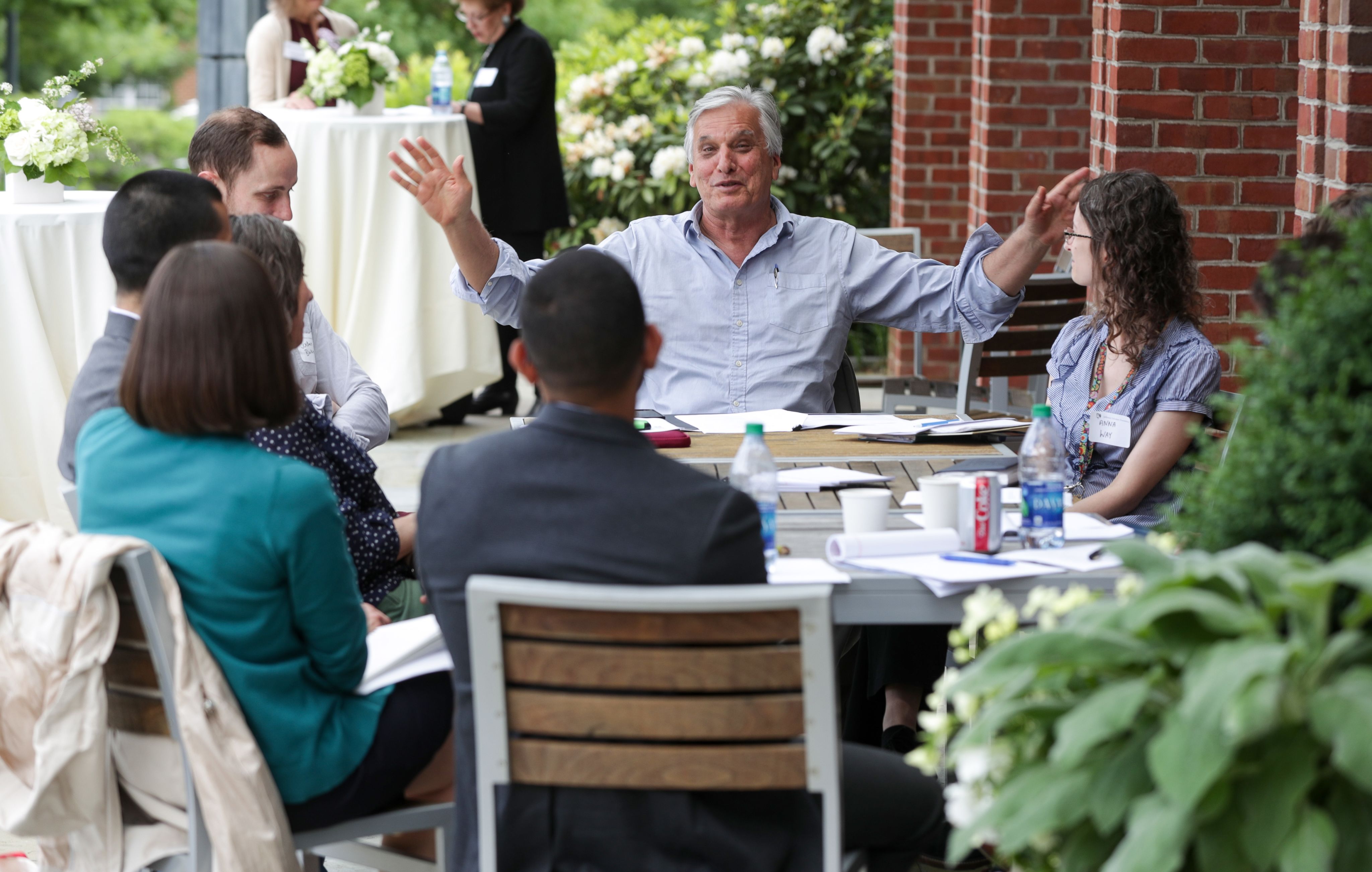
Brian Balogh engages with a group of Fellows at the Jefferson Scholars Foundation
Sugrue’s first mentee, Anthony Chen, is now a professor himself at Northwestern University, where his work focuses on American political development and public policy after the New Deal. Chen chose Sugrue as his dream mentor in 2001 and worked closely with him as he completed an award-winning dissertation at the University of California, Berkeley.
Much to Sugrue’s surprise and delight, his relationship with Chen ended up being mutually beneficial. They continue to consult one another 20 years later.
“I learned a huge amount from his research at a moment when I was writing my own book on the history of civil rights in the U.S.,” he said. “That is one of the unexpected benefits of the dream mentorship.”
Balogh understood what a strong interconnected network of rising and established scholars across multiple prominent institutions could do for political history. Such a network was key to promoting new faculty hires, recruiting talented students, and ultimately bolstering the field.
By most measures, the National Fellowship Program has done exactly that.
To date, the National Fellowship has engaged more than 150 dream mentors and supported approximately 200 rising historians and social scientists, 75 percent of whom have gone on to teach at major universities and hold tenure or tenure-track positions. Other National Fellows have forged equally successful careers in public service, the nonprofit sector, government, and other public-facing professions.

Brian Balogh engages with a group of Fellows at the Jefferson Scholars Foundation
Brian Balogh engages with a group of Fellows at the Jefferson Scholars Foundation
Collectively, the National Fellowship community has published hundreds of books with major presses, many of which have garnered major awards, including, most recently, National Fellow alumna Beverly Gage’s Pulitzer Prize-winning book, G-Man: J. Edgar Hoover and the Making of the American Century. They also regularly place op-eds related to their research in the New York Times, Wall Street Journal, Washington Post, and leading digital media.
Margaret O’Mara, who received a National Fellowship in 2002 while pursuing her Ph.D. at the University of Pennsylvania, worked in the Clinton White House prior to graduate school and served as a contributing researcher at the Brookings Institution.
“When I entered academia, I was so impressed by the research around me, but I couldn’t help noticing a disconnect between those studying the profession and those practicing it,” she said. “The National Fellowship Program created a bridge between policy makers and those who study it.”
Today, O’Mara teaches about the growth of high-tech economy, the history of U.S. politics, and the connections between the two at the University of Washington and is a past contributing opinion writer at the New York Times. She credits the training she received as a National Fellow for much of her success.
One of the unique features of the Fellowship is the fact that Fellows and their dream mentors convene in Charlottesville for two academic conferences, where they workshop book manuscripts, participate in panel discussions with leading scholars in the field, present academic talks, and take part in various targeted training sessions.
One such training session is led by Jon Zimmerman, a professor at the University of Pennsylvania who also happens to be a prolific op-ed writer, often publishing as many as three in one week. For years, Zimmerman has led a clinic at the spring conference to teach Fellows how to write successful op-eds.
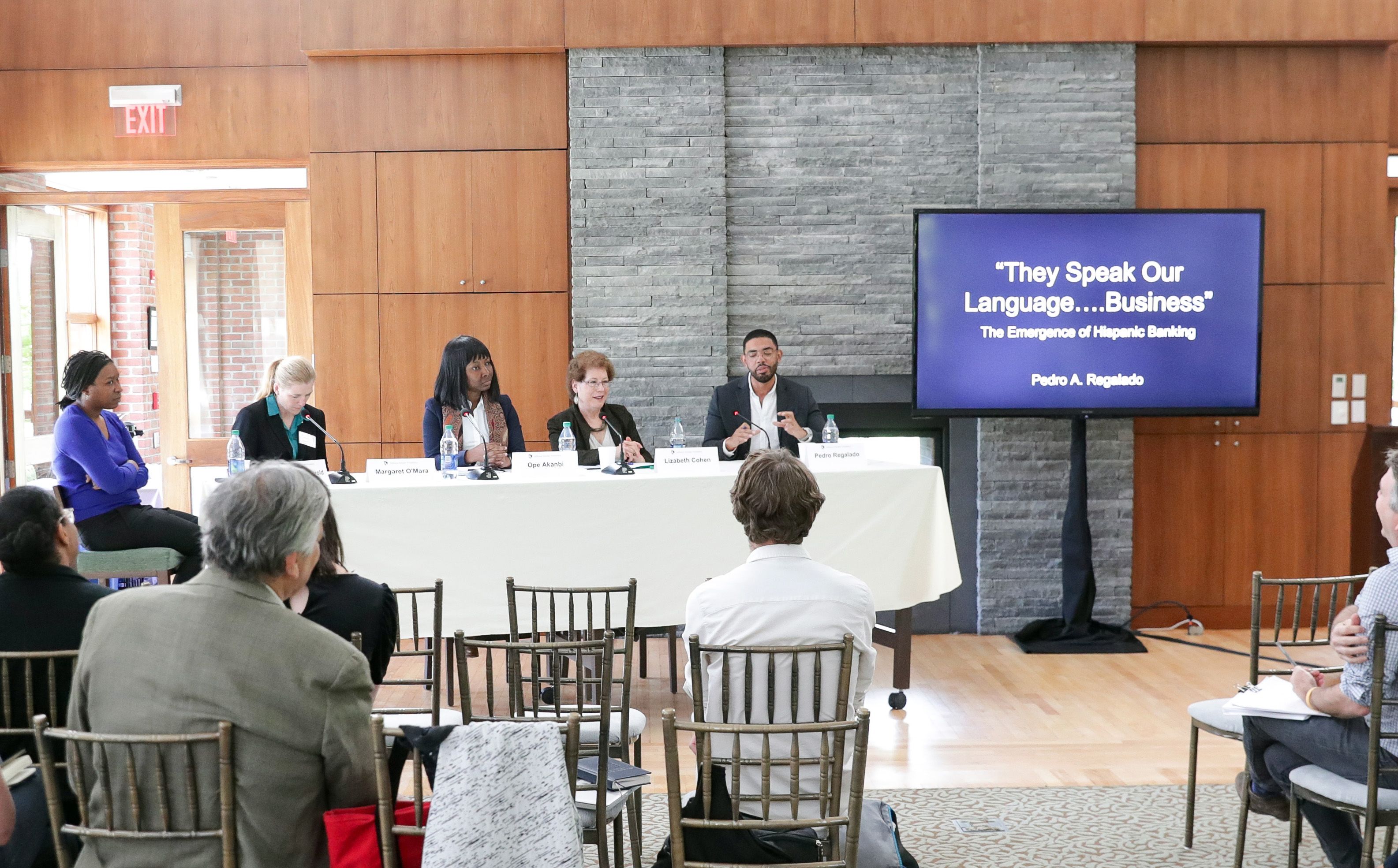
Aside from creating the National Fellowship, Balogh can also be credited for ensuring its continued success, even after his retirement. He had the foresight in 2016 to propose a partnership with the Jefferson Scholars Foundation at UVA, a recruiting powerhouse with a well-earned reputation for attracting into its orbit exceptionally talented students and faculty and, in turn, generously backing them with funding and enrichment opportunities.
The Foundation’s longtime president, Jimmy Wright, was compelled by the unique scholarly value of the National Fellowship and what it could bring to the Foundation’s already-burgeoning scholarly community. So, he accepted Balogh’s proposition and agreed that the Foundation would be a fitting permanent home.
“Welcoming this remarkable group of world-class scholars into the Jefferson Scholars Foundation community not only has enhanced the interdisciplinary vibrancy of our existing scholarship and fellowship programs, but it also continues to bring distinction to UVA, an important part of our mission,” said Wright.
In 2020, several years before his official retirement, Balogh, along with Wright, led a search committee that selected James Sparrow, a political historian at the University of Chicago, as the new director of the National Fellowship. Sparrow’s teaching focuses on the history of U.S. politics, diplomacy, and war, as well as the history of the New Deal, the early Cold War, and digital history, among other subjects.
With new leadership and a reliable funding source securely in place, the National Fellowship Program promises to retain the signal features that have made it a success, as well as introduce new features in response to the changing landscape of graduate education.
“Graduate students who are getting tenure-line jobs today are getting them with sometimes two or three articles in top journals, before they even complete their Ph.D.,” said Sparrow. “Not that long ago, it wasn’t a requirement or expected to have that type of coverage and experience under your belt.”
That is partly why Sparrow is giving National Fellows more time, offering up to two years of support instead of just one.
American political history, it turns out, is more than just the perfect backdrop for the latest blockbuster biopic. “U.S. political history has always been central to a healthy civic culture,” said Sparrow, “and we need it to grapple with our volatile, politically polarized world.”
With any luck, the National Fellowship Program will continue shining a bright light on that truth far into the future.
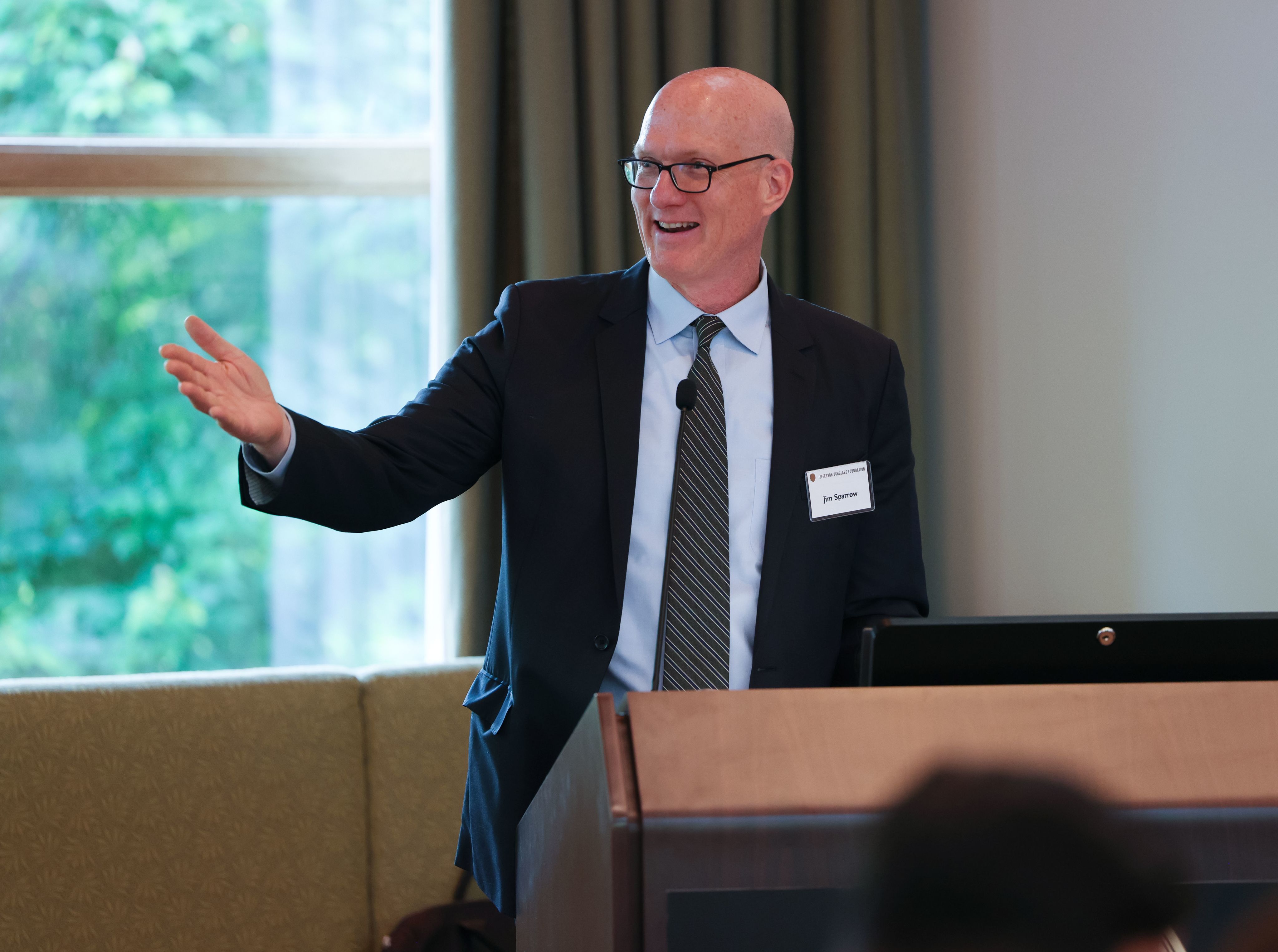
Jim Sparrow, a former dream mentor of the National Fellowship Program, currently serves as the director.
Jim Sparrow, a former dream mentor of the National Fellowship Program, currently serves as the director.
This content was paid for and created by Jefferson Scholars Foundation. The editorial staff of The Chronicle had no role in its preparation. Find out more about paid content.



